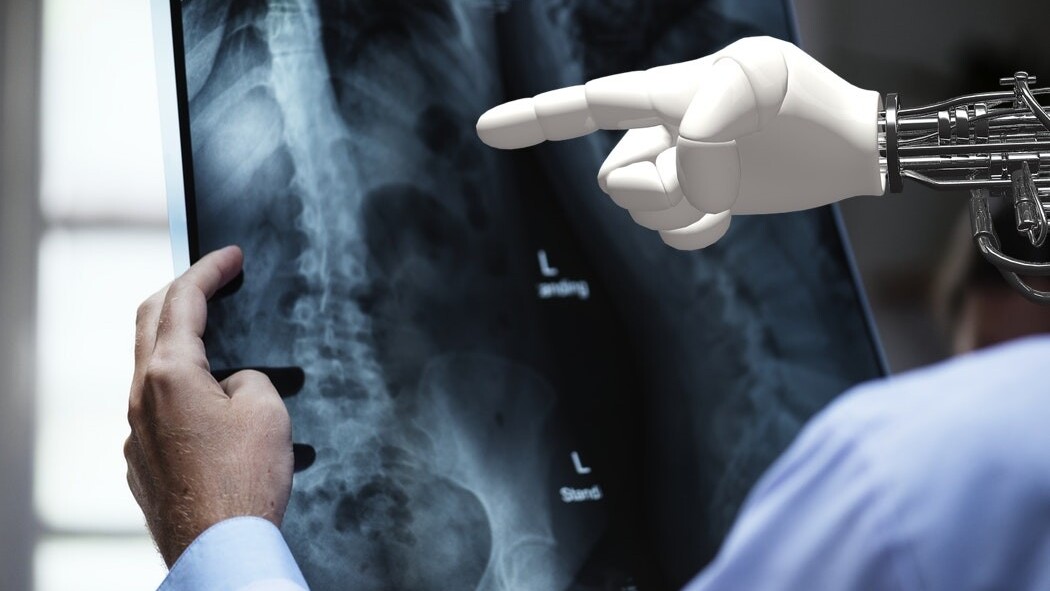
One in three people are expected to develop cancer during their lifetime. With the help of AI-based algorithms, pathologists will be able to deliver better and faster diagnoses.
New cancer cases will increase by almost 70% over the next two decades, from 14 million in 2012 to 22 million. In the US, the National Cancer Institute reports that one in three people are expected to develop cancer in their lifetime. Pathologists are dealing with growing caseloads while patients are increasingly expecting high-quality diagnoses and treatments, causing delays in delivering diagnoses.
Pathology, the medical branch that focuses on the causes, manifestations, and diagnosis of diseases such as cancer has changed little in over a century. With the growing number and complexity of cancer cases and other illnesses, pathology is just starting to see the benefits from increased productivity and efficiencies enabled by digitization and AI.
The AI will see you now
Digitization allows specialists to access a larger set of medical data to get a better understanding of their patients, enhancing prognosis and outcomes. AI helps further, to make sense of that data.
Today, AI is successfully applied to pattern recognition and quantitative measurement on whole slide images to detect cancer and other abnormalities. In one study, researchers from Case Western Reserve University found that a deep learning system could identify invasive forms of breast cancer in pathology images with 100 percent accuracy.
AI-based software by Philips
Philips, a global leader in health technology, has made significant headway in Digital and Computational Pathology (DCP) with its Philips IntelliSite Pathology Solution. The technology enables pathologists to diagnose digital images more efficiently and accurately with the support of other clinicians while streamlining workflow practices.
In 2017, Philips started marketing the Philips IntelliSite Pathology Solution as the first and currently the only digital pathology solution in the US (the largest healthcare market) for primary diagnostic use.
Philips introduced its first deep learning product to support accurate tumor estimation for molecular research. The next challenge would be to develop these type of algorithms to clinical grade and seamlessly deploy in the diagnostic workflow. A seamless clinical deployment of AI involves careful considerations to the workflow including execution time (anything more than a few minutes runtime defies the purpose), total cost of deployment and flexibility and control for the pathologist always.
How is Philips different from other industry players?
Philips has partnered with several leading key opinion leaders (KOLs)and healthcare providers such as Mount Sinai which has the world’s leading breast cancer data repository and LabPON which plans to create the world’s largest pathology database using Philips IntelliSite Pathology Solution.
With the help of their large curated repository of real-world medical data, Philips will be able to build clinically robust deep learning algorithms that can handle variability in data sources and disease subtypes. This data makes it possible for AI solutions to go beyond proof of concept and be adopted for a high throughput routine clinical practice.
What’s it like to work on AI-based healthcare?
Arun Ananthapadmanabhan, Head of Products, Philips Computational Pathology explains: “AI is everywhere today, and data scientists are in demand. The worst thing you can do to a data scientist is hire them and not provide them with the right data. Relevant, processed, high quality curated data is not easy to come by and takes a long time to build up.”
“There are numerous opportunities for applying AI to healthcare,” adds Philips’ Data Scientist Ariadne Whitby. “It is an exciting domain to work in, evident from the numerous AI-based healthtech startups, as well as advances from the established players. It’s great to see the many innovative ideas and companies out there.”
Whitby joined DCP Philips because it combined the best of both worlds – a dynamic, startup environment backed by a strong parent company. “I wanted to join an organization where there is domain knowledge to understand how to integrate a new product or concept into the healthcare system, and the channels to distribute it. I didn’t want to risk working on something awesome which doesn’t get realized because of the lack of commercial know-how.”
“AI in healthcare, and specifically digital pathology, is one of the key focus areas for Philips”, says Arun. “Digital pathology combines the power of a startup with our experience and rich heritage of innovation. We continue to grow fast, and our teams are young, diverse and highly skilled. They wake up every day thinking about the next step in solving the global problem of cancer,” he concludes.
Get ready
The digital transformation of pathology is well underway. AI is helping to replace subjectivity with sophisticated quantitative measurements, while cutting-edge technologies and data-driven solutions are improving the reliability and quality of diagnoses, treatments and patient care.
But these deep learning systems cannot be made without the help of software talent. So with these developments come trailblazing career possibilities for software developers and data scientists who want to be changing the future of healthcare. Are you ready?
Get the TNW newsletter
Get the most important tech news in your inbox each week.




